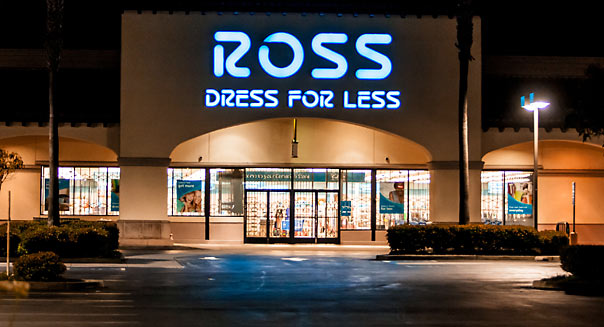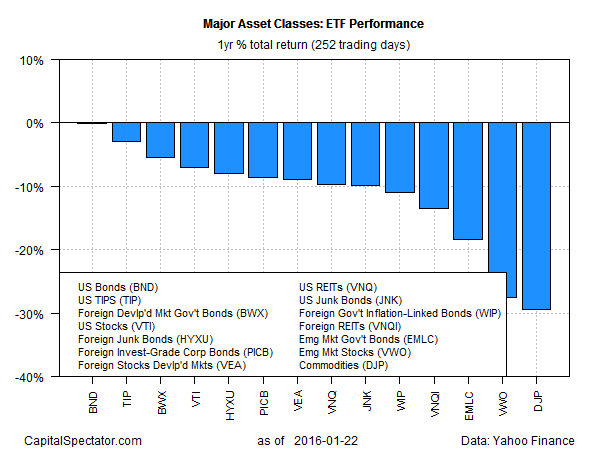The C-Suite Speaks: Banks See Strength
by Scott Krisiloff, Avondale Asset Management
Each week our team at Avondale Asset Management reads dozens of transcripts from earnings calls and presentations as part of our investment process. Below is a weekly post which contains some of the most important quotes about the economy and industry trends from those transcripts.
The first full week of earnings season is always filled with reports from the nation’s banks. Banks typically give the best read on the economy of any industry and for now they sound relatively upbeat. Outside of energy, credit has remained strong and management teams are optimistic about prospects for loan growth. Still, there’s reason to be skeptical. Banks were so beaten up in the last cycle that it’s possible the reason they are seeing strength now is that they never really overextended themselves in this one. We’ll look for confirmation this week as earnings season hits its busiest point.
Click here to receive these posts weekly via email.
The Macro Outlook
There’s a lot of pain in the industrial economy.
“We sell across the continent, around the planet. Most of our business is in North America and we sell to a lot of different industries. And when you start looking through the list, of lot of names that you recognize stand out and you can see the pain they are feeling in their business.” — Fastenal president and CEO Dan Florness (Industrial Distributor)
Union Pacific has seen a dramatic drop-off in volume.
“It is hard for me to speak and predict on whether the economy is going into a recession. Certainly our volume drop off as the 2015 year progressed quarter to quarter and as we are entering 2016 is dramatic, and it is dramatic in historical reference . . . A 6% decrease year-over-year and a quarterly 6%, 7%, 8%, 9% decrease year-over-year is pretty dramatic volume change.” — Union Pacific chairman, president, and CEO Lance Fritz (Railroad)
Whatever industrial companies are seeing, the banks perceive a very different picture.
Most banks see the economy holding up pretty well.
“While parts of the global economy have continued to experience stress and the markets have reacted negatively in the early weeks of 2016, domestic economic conditions remain generally favorable.” — Wells Fargo chairman and CEO John Stumpf (Bank)
BB&T’s CEO said that there’s a lot of overreaction going on.
“There’s been a lot written and said over the last few weeks about the issues in the stock market. We believe there’s a lot of overreaction going on. It’s like you woke up January 2, all of a sudden everybody decided the world’s falling apart, and we reject that. We don’t see any fundamental structural changes between the first part of December and the first part of January. The world just doesn’t happen that fast.” — BB&T chairman and CEO Kelly King (Regional Bank)
Delta expressed a similar sentiment.
“We’re pretty optimistic relative to what you read on CNBC or Wall Street Journal or some of the thunders out there that are predicting the future. We are booked ahead in terms of load factor for each of the months for February, March, April, and really add into early summer.” — Delta CEO Richard Anderson (Airline)
Outside of energy portfolios, there hasn’t been any deterioration in credit.
“Negative credit migration in our energy exposure continued as expected. . . .The remainder of the loan book continues to perform well.” — Comerica chairman and CEO Ralph Babb Jr. (Regional Bank)
“Outside of energy, we are not seeing asset quality change nor are we seeing a reduction in appetite for our credit. . . . We continue to see a lot of opportunities that help our customers grow their businesses.” — Bank of America CFO Paul Donofrio (Bank)
And everyone is quick to point out that lower oil prices should invigorate the economy.
“Yes, oil is down and that is a factor in terms of the oil space, but oil is overall really stimulative. It’s stimulative to consumers. It’s stimulative to businesses. It’s stimulative to airlines. Oil is stimulative.” — BB&T chairman and CEO Kelly King (Regional Bank)
“In this instance, cheap oil is a net stimulative impact on US growth. A WorldCom fraud was not beneficial for everybody else in the US. Telecom didn’t get cheaper. But fuel has gotten cheaper, which is good for consumers.” —Wells Fargo senior EVP and CFO John Shrewsberry (Bank)
“It feels like the degree to which the market is focused on energy exposure has managed to discount the long-term tailwinds to the consumer in a reduction of costs across the globe.” — Goldman Sachs EVP and CFO Harvey Schwartz (Investment Bank)
The lending environment appears to still be very competitive.
“In terms of the market it’s kind of interesting. We characterize it to still be intensely competitive. . . . Pricing in most markets is still coming down slightly. It’s not stable but it’s still coming down. Smaller banks are routinely below 200 basis points in terms of margin, maybe 150 to 160 basis points. We’re seeing places where there is no recourse, limited covenants, and in some cases people waiving due diligence.” — M&T Bank EVP and CFO René Jones (Regional Bank)
Still, it would be foolish to claim that conditions are improving.
“It’s tough out there. There’s no doubt about it. It would be irresponsible to assume that it’s getting better right now. The year has certainly started more volatile. There are some major issues that need to be solved in the global economy to get the growth back.” — Unilever CEO Paul Polman (Consumer Packaged Goods)
It is a tense environment.
“Look, obviously the first couple of weeks of the year have been difficult from a market perspective, and the last half of the year, and continuing the dramatic decline in commodity prices broadly has been disruptive for the market. I think if you talk to our folks, obviously that sector prices remain where they are, it’s going to be under stress. That’s an inevitability.” — Goldman Sachs EVP and CFO Harvey Schwartz (Investment Bank)
Even bullish bankers say that activity is on the weak side.
“While we don’t think the economy’s tanking, we don’t think it’s going to be super robust either. It’s kind of a slow, steady-as-you-go activity.” — BB&T chairman and CEO Kelly King (Regional Bank)
“Although the US economy is improving slowly, revenue growth remains challenging. This quarter we continued our progress on those things we can control and drive.” — Bank of America CFO Paul Donofrio (Bank)
“I’m not going to say it’s robust, but we’re really happy we’re all-in in the US. Let’s put it that way.” — Wells Fargo chairman and CEO John Stumpf (Bank)
Bankers who have recently met with customers report increasing apprehension.
“Frankly, as recently as just the last few days, I have had interaction with a number of clients in the marketplace. So I think this is pretty contemporary feedback. We are seeing a growing sense of caution from our client base. And frankly, that is really across almost all of our businesses.” — Fifth Third Bank EVP and COO Lars Anderson (Regional Bank)
It’s a deflationary environment.
“In a low growth and deflationary environment, we have to work the cost part of the equation harder.” — Unilever CEO Paul Polman (Consumer Packaged Goods)
Companies are still trying to right size inventories.
“I think across the board, you hear every customer talking about trying to right size their inventories.” — Union Pacific EVP of marketing and sales Eric Butler (Railroad)
It’s going to be hard to generate record earnings.
“We are going to fight like heck to do the best we can. But yes, you are correct. At this point in time, we do not see record earnings.” — Union Pacific CFO Robert Knight Jr. (Railroad)
Institutional investors are showing apprehension.
“We’ve seen a bit of a softness in the VC market, that’s because firms are exercising more caution following several years of really strong investment and high valuations. There had been some challenging verticals, like cyber security ad-tech, but — so we’re watching that carefully.” — Comerica EVP, business bank, J. Patrick Faubion (Regional Bank)
Retail investors don’t seem to be too concerned though.
“Some of the widening of spreads or the fears of higher rates are going to produce some selling, possibly from retail. But we haven’t seen anything dramatic yet. We haven’t seen really any dramatic outflows on iShares yet.” —BlackRock chairman and CEO Larry Fink (Asset Manager)
The average investor is laying low for the moment.
“While trading is up and the number of clients trading is up as well, we are still seeing a wait-and-see attitude from the broader client base. Those who are trading are doing so quite actively, but the average investor is waiting to see which way this market will turn next.” — TD Ameritrade CEO Fred Tomczyk (Retail Brokerage)
International
Currency could have an even greater impact on profits this year as hedges expire.
“Currency continues to be a significant headwind. . . . Given the sustained period of dollar strengthening, the profit impact in 2016 will in, fact, be greater than 2015, both because of the translation impact and the roll-off effect of cash-flow hedging gains.” — IBM senior vice president and CFO Martin Schroeter (Enterprise Tech)
Intel representatives in China is seeing things that are making them uneasy.
“Our team on the ground in China has gotten fairly cautious about what’s going on in China right now. And as you know, that is the largest PC market, so we are just a little cautious on the growth rates there.” — Intel EVP and CFO Stacy Smith (Semiconductors)
India has been hit by a second weak monsoon season in a row.
“Crop failures for a second consecutive monsoon failure have put pressures on rural demand in India.” — Unilever CEO Paul Polman (Consumer Packaged Goods)
Netflix is a luxury that only exclusive segments of the world can afford for $8–$10 per month.
“Well we’re starting off definitely appealing to elite. I mean I mentioned that in Russia and Eastern Europe, you know, we’re still in English. In Vietnam and Cambodia, we’re in English. So we’re serving elites. You can think of them as a shorthand as iPhone owner, so that they pay $800 for an iPhone. They are comfortable with entertainment in English, and so for them, you know, $8–$10 is a sweet-spot price.” — Netflix CFO David Wells (Streaming Video)
Financials
Interactive brokers called out something strange going on in Treasury markets. Three month T-Bills are trading well under the federal funds rate.
“According to the new banking regulation, these type of financial deposits this year will have to be secured by Treasuries even of the banks, which may result in a squeeze on Treasuries. Indeed, we see Treasuries maturing within three months currently being traded well under the Fed fund rates.” — Interactive Brokers chairman and CEO Thomas Peterffy (Retail Brokerage)
M&T Bank noted higher delinquencies in the indirect auto space.
“The only place, and it’s not in M&T’s book, on a national level, where you see both higher spreads and higher delinquencies, is in the indirect auto space.” — M&T Bank EVP and CEO René Jones (Regional Bank)
Low organic growth has been a key driver of M&A activity.
“What are the factors that drove the M&A environment over the past 18 months and are they still in place? And those core factors [are] really limited organic growth, companies were struggling to find top-line growth. You had positive but modest economic growth in major economies, and companies had done quite a bit of work both on cost and refinancing going into that cycle and there was high level CEO and board confidence.” — Goldman Sachs EVP and CFO Harvey Schwartz (Investment Bank)
Several banks said they are not looking to acquire other banks.
“As it relates to traditional bank M&A, we are not interested, we are not involved. There is a variety of reasons you’ve heard me talk about before. Sometime through time could that somehow change? Sure, because forever is a long time. But today it’s not on our radar.” — PNC Bank chairman, president, and CEO Bill Demchak (Regional Bank)
Banks are overcapitalized.
“So our thought process is that our optimal capital structure is definitely lower than where it is at today. But we’ll have to work our way through the CCAR [Comprehensive Capital Analysis and Review] and go through that process.” — M&T Bank EVP and CFO René Jones (Regional Bank)
Morgan Stanley is making significant restructuring moves in its fixed-income trading business.
“Given the cyclical and, in some cases, structural challenges facing fixed income, driven by the work . . . we took the decision to downside headcount by 25%, along with our ongoing balance sheet and capital focus. We took this action alongside the recent installation of a new management team with the objective of credibly sizing the business going forward.” — Morgan Stanley chairman of the board and CEO James Gorman (Investment Bank)
Financial adviser growth has slowed (probably because retail investors are doing well).
“The retail asset gathering is slightly up year over year and the institutional side is down. The institutional side is down largely to existing advisers. They are continuing to grow, but they are not growing as fast as they did last year at the same time. . . . In our discussions with them, it’s much more the market environment. It really is basically the market was essentially flat last year, so it’s hard to differentiate yourself.” — TD Ameritrade CEO Fred Tomczyk (Retail Brokerage)
Driverless cars and other developments could lead to big changes for the insurance industry over the coming years.
“What’s going on with any of our competitors or what’s going on with technology or big data or driverless cars, consolidation among distribution, you could go on and on. I think what I would share with you is we’re very aware and deeply engaged . . . But as we think of everything that’s got the potential to change in this marketplace, nothing is going to change overnight. These are things that are all going to evolve and develop overtime.” — Travelers CEO Alan Schnitzer (Insurance)
Consumer
Brinker experienced more divergence from region to region among consumers at its restaurants.
“It is important to note, we saw considerably more regional variability during the quarter than we’ve seen traditionally. Some parts of the country performed significantly better than others, though none as strong as we’d like. Chili’s is deeply penetrated in areas like Texas and Louisiana. They’re dealing with economic pressures linked to declining oil prices.” — Brinker International CEO and president Wyman Roberts (Restaurants)
Middle market brands are disappearing in the United States along with the middle class.
“We think that these prestige brands, small as they may be, are well positioned. . . . The US is a great example. . . . GDP growth goes to a very small amount of people and they’re not eating more products. The middle market is disappearing, which is the bulk of the business. That’s why you see a lot of retailers struggling. But the prestige segment is continuing to grow amongst that target and we’re very well positioned for that.” — Unilever CEO Paul Polman (Consumer Packaged Goods)
Verizon says it’s too early to tell whether people are upgrading their handsets more slowly because of the switch to installment plans.
“Well, for our base it’s too early to tell because the first generation of them are just starting to mature. Until I get some real factual data on that, it’s hard for me to answer. My own personal opinion here is that if you look at history, a third of your customer base upgrades every year. I don’t see that changing, regardless of what plan the customer is on.” — Verizon EVP and CFO Francis Shammo (Telecom)
Technology
Logitech saw strong demand for its iPad Pro accessories.
“The bright spot for us in Q3 was the strong sales of our CREATE keyboard for the iPad Pro. Demand exceeded supply during the quarter due to the strong initial reception.” — Logitech president and CEO Bracken Darrell (Consumer Electronics)
ARM has not been able to displace x86 in servers as easily as some expected.
“The datacenter market is really, really interesting. . . . I think x86 has a lot of momentum. . . . I think ARM does have a lot of specific areas where it can contribute and it has done so. But I would say in servers, in particular, perhaps slower than originally expected, but still something to watch for the medium term.” — AMD president and CEO Lisa Su (Semiconductors)
The Weather Company handles seven times as many queries per day as the world’s largest search engine.
“This platform can handle enormous complexity, taking in four billion weather forecasting points and 26 billion queries in its cloud service each day. This is the fourth most-used mobile app, handling seven times more transaction volume than the world’s leading search engine.” — IBM senior vice president and CFO Martin Schroeter (Enterprise Tech)
Materials, Energy
The Texas economy has proven to be surprisingly resilient.
“Houston has weathered in many respects this transition far better than many thought, including me. I give Houston a lot of credit. They are quite resilient.” — Texas Capital Bancshares president and CEO C. Keith Cargill (Bank)
Energy companies have continued to hedge their oil price exposure as prices have fallen.
“Right now we’ve 59% of our borrowers that have 50% or more of the revenue hedged out one year and then drops off to 30% after that. . . . Now the value of those hedges has dropped . . . but I think the good thing here is that borrowers are actively working to extend the runway” — Comerica EVP and chief credit officer Peter Guilfoile (Regional Bank)
No one expects oil to remain below $30 for long.
“I don’t think it’s the view of the industry at this point that oil is going to stay sub-$30 for any length of time.” — Regions Financial chief credit officer Barb Godin (Regional Bank)
The oil price should eventually hit a capitulation point.
“History indicates usually you’ll hit a capitulation point, a bottom, and it doesn’t just slowly return to a better price level. Now, this time there’s some unique aspects of shale production, where there’s been quite a lot drilled and not completed and that’s a little bit of an unknown certainly. But overall we think that $35 that we used most recently is realistic today.” — Texas Capital Bancshares CFO Peter Bartholow (Bank)
But the appetite to lend to energy companies has gone away.
“Capital markets were actually, as you know, were quite open for energy companies very early in this. And that has gone away. . . . Maybe it’s this incremental leg down to where we’re on crude prices that has people generally believing that this could be where we’re for a longer time.” — Wells Fargo senior EVP and CFO John Shrewsberry (Bank)
Full transcripts can be found at Seeking Alpha.
If you liked this post, don’t forget to subscribe to the Enterprising Investor.
Please note that the content of this site should not be construed as investment advice, nor do the opinions expressed necessarily reflect the views of CFA Institute.
Image credit: ©iStockphoto.com/CSA-Archive
Copyright © Avondale Asset Management via CFA Institute















